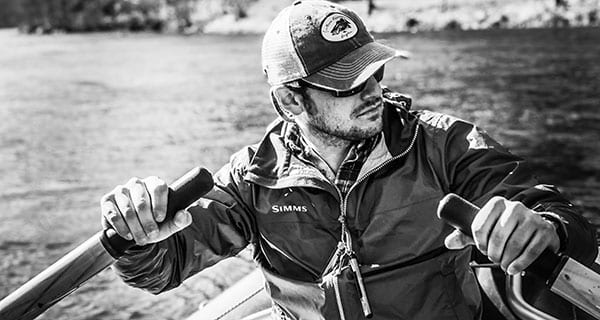I was recently going through the fly-tying section of an outdoors store, when something interesting caught my eye. In the middle of packets of dubbing and other various tying materials was something I would expect to see more at the crappie fishing section of bass pro shops:
“Hareline Squiggle Worms – Brown/ Olive” – Essentially, small soft plastic worms.
This sparked in my mind the musings of an age-old debate that has been around since the development of beadhead nymphs as to the arbitrary line that separates fly fishing from conventional fishing. Within recent years, that line has become ever more blurred and harder to recognize. Squirmy worms are essentially trout magnets with extra steps. Fly tying companies are starting to sell overpriced ball head jigs for “streamers”, and common fly fishing accessories can now include ball bearing swivels, fly clips, and even crankbait lips for fly tying.
Seriously, are we really even fly fishing anymore?
Now granted, I’m definitely not a fly fishing purist. I look at all types of fishing equipment as tools for different jobs. This is where the lines to me start becoming very skewed, because we are starting to misuse those tools for purposes they were not designed for. For example: I could theoretically throw a senko from an 8-weight fly rod. I could also theoretically cast a dry fly with a spinning rod and a casting bubble. Neither of those scenarios, however, would be very productive, and would also be a handicap in learning how to fish with each in a more proper manner.
Distinguishing the difference between fly fishing and conventional fishing is not to say that one is objectively better than the other. I do think that the line between them is important for anglers to establish from a sense of inherent moral respect for the skill and knowledge it takes to learn when to use the right tool for the job. In my opinion, it becomes a disservice to the legacy of anglers before us who’s ingenious inventions have developed the lures, flies, and techniques that we are blessed with the knowledge of today.
With that said, I think it’s worth answering this question for ourselves as individual anglers in regards to our own fishing. It’s not that there’s anything inherently wrong with taking components from conventional fishing and applying them to fly fishing, and vice versa. But how can we then progress in our own skill sets when we don’t even know how to use the basic tools properly in the first place?
I wonder now in which direction fishing, as a whole, will evolve/ devolve towards, because it seems we are at a crossroads within the angling community, where the primal instinct of catching as many fish as possible is taking over the more refined and transcendent view of fishing as a means of philosophical ascendance into an action that is greater than merely catching fish. Overcoming the challenges of learning new techniques is by far more rewarding and meaningful than to corrupt what fly fishing or conventional fishing was meant to be in the first place.
Granted, this is all just my opinion, but I found it to be an interesting thought.
Ethan Hollifield is a member of a conservation organization called 2% For Conservation and a guide for Southern Appalachian Anglers
